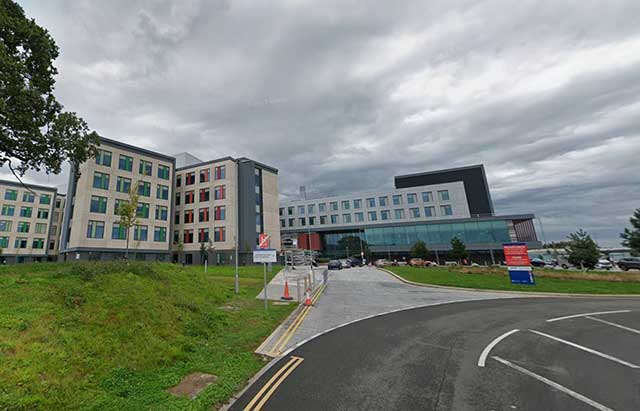SIX new consultant doctors are to be taken on to reduce the time patients spend waiting to be seen at Gwent’s troubled emergency department.
Constant complaints have been made around how long patients taken to the Grange Hospital, in Cwmbran, have to wait to be assessed and admitted to a ward and the time spent by ambulances waiting to hand patients over.
The Aneurin Bevan University Health Board, that runs the hospital, has been under enhanced monitoring , from the Welsh Government, of the unit’s performance since January this year.
It placed the Gwent NHS body in the category due to concerns over urgent and emergency care pathways at the hospital and demanded improvements in ambulance hand over times.
Bosses were also told to work towards ensuring no more than five per cent of patients wait 12 hours or longer at the unit, and minor injuries units across Gwent, and that all patients are assessed by a senior clinical decision maker within 60 minutes of their arrival.
The health board has now approved the plan to recruit six consultants and further expansion of the Grange, opened just four years ago, with a new patient transfer lounge for those waiting to be taken home, or to other hospitals, to be built.
The current lounge only has six beds and four chairs and is too small to cope with the volume of patients moving through the hospital where around 50 patients are discharged every day and 13 “stepped down” to other hospitals.
As a result patients have been left waiting for discharge on wards, blocking beds that could be given to new patients arriving at the hospital – including those left waiting on ambulances outside the emergency department.
The new ‘demountable’, or flat pack building, will have space for 10 beds and 15 chairs and could increase to 12 beds and 20 chairs. The transfer lounge will operate from 8am to 8pm.
Chief operating officer Leanne Watkins said the intention is to have the new unit in place by this coming January, and it’s hoped to have the new consultants in place by April with the board “confident” it can recruit.
Ms Watkins said the portable building can be leased at first, funded from the health board’s day to day budget, but it will also look for one off capital funding to purchase the building in the longer term.
The unit is considered essential for safety and Ms Watkins said: “We are determined to get something in place for this winter.”
If additional capital funding isn’t awarded the unit will cost the board £659,000 in the 2025/26 financial year, in addition to £189,000 this year. Ms Watkins said the investment is less than one per cent of the board’s turnover and within its “innovation” reserve.
Strike action by junior doctors, in March this year, also helped the board realise it required more senior decision makers at the unit, leading to the plan to recruit six consultants at a cost of £837,000 over two years which also includes an additional medical secretary.
Ms Watkins said: “We had industrial action but an empty waiting room.”
Board member Iwan Jones asked if the additional investment is required as it’s been previous stated many attending the Grange didn’t require emergency care and should be seen elsewhere, such as a minor injuries unit.
But medical director Dr James Calvert said an assessment using GPs with the board’s triage team found less than three people a day attended the Grange when they could be seen elsewhere. He said: “It’s a drop in the ocean”.

